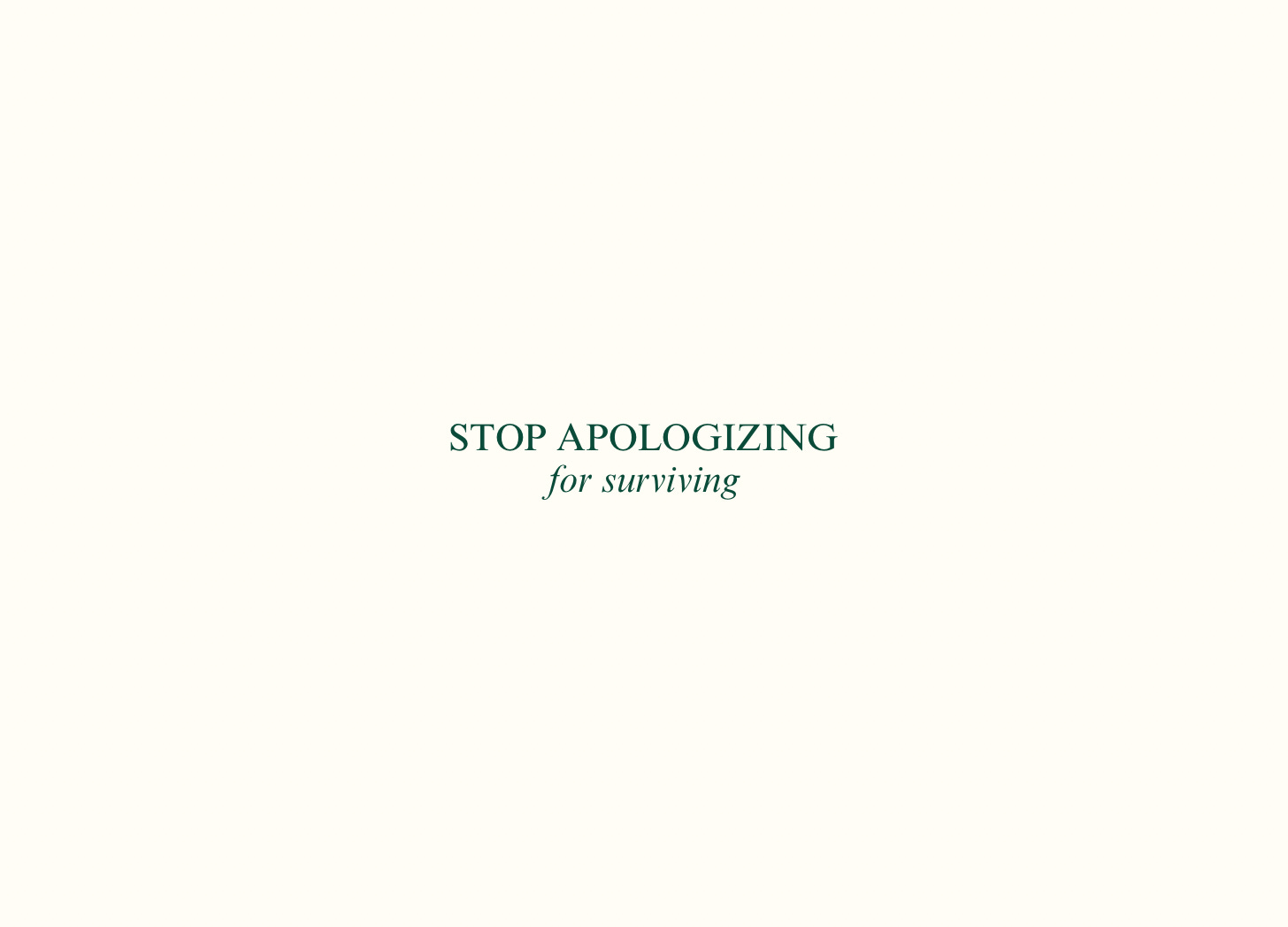STOP APOLOGIZING FOR SURVIVING
On Living Through Your Own Funeral (and the Poetry That Comes From It)
There’s a moment when you realize you’ve been living someone else’s life.
It happens quietly. Maybe you’re filling out a therapy worksheet, writing things like you are deserving of love and you can trust yourself, and the pen feels foreign in your hand. Like you’re forging a signature.
Or maybe it’s simpler than that. Maybe you catch yourself apologizing …
Keep reading with a 7-day free trial
Subscribe to Postscript Thoughts to keep reading this post and get 7 days of free access to the full post archives.



